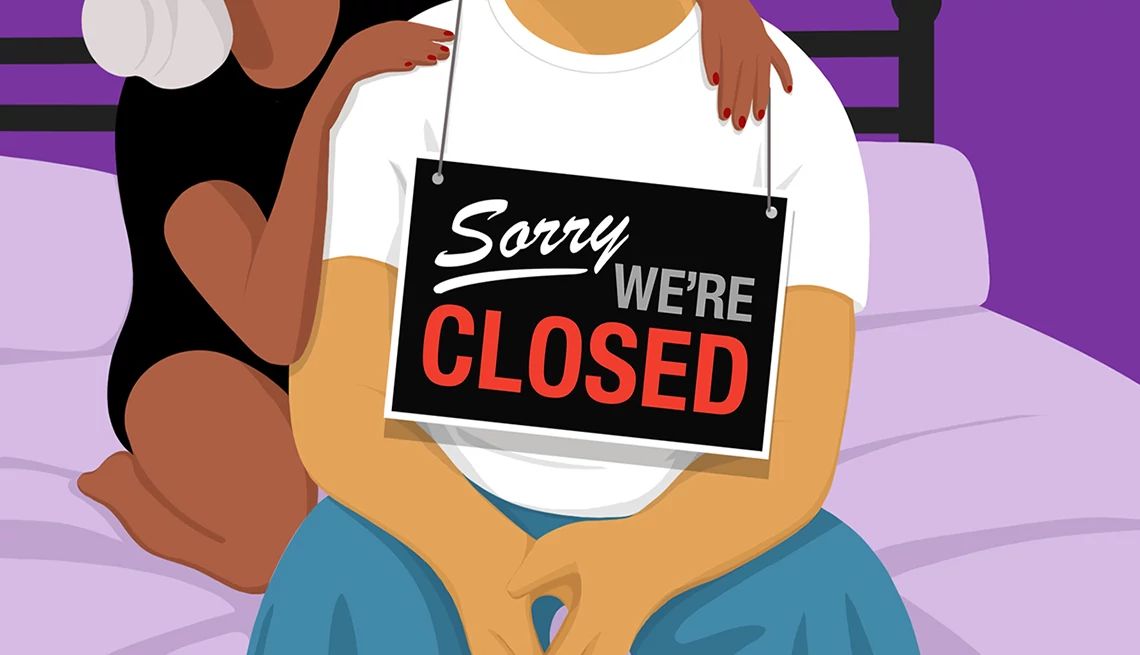AARP Hearing Center


Many of your emails to In The Mood involve the challenges of living in a sexless marriage. Typically, one person wants sex, the other one doesn’t. Now, that’s some unhappy math.
This week, a man reports that he’s lost all sexual desire for his wife. Love her, yes. Want her, no.
Our sexuality experts break it all down, offering guidance on what it could look like to rekindle the relationship.
After 35 years of a good marriage and normal sex, I have completely lost sexual desire for my wife. I still love her and want to be with her but, needless to say, she is struggling with the rejection. Any suggestions?
Before calling your sex life quits, our sexuality specialists urge you to dig deep for possible reasons and ways to handle the situation.


In the Mood
For AARP’s In the Mood column, writer Ellen Uzelac will ask experts your most pressing 50+ sex and relationship questions. Uzelac is the former West Coast bureau chief for The Baltimore Sun. She writes frequently on sex, relationships, travel and lifestyle issues.
Step 1: Rule out any health issues
Evelin Dacker, a family physician in Salem, Oregon, who specializes in sexual health, suggests consulting a doctor to check your cholesterol and blood pressure, and for erectile issues, just to make sure that nothing vascular is involved. You should also get a testosterone check, says Dacker. A low testosterone level, common in older men, can reduce the desire for sex and the ability to maintain erections while also contributing to fatigue and muscle loss, she says. “It just slows you down.”
Certified sex therapist Sari Cooper, founder of Center for Love and Sex in New York City, wonders: Have you lost sexual functioning? Are you experiencing fewer erections? If so, she says, your loss of sexual desire may not necessarily be exclusively about waning attraction for your wife.
“This is important to talk about,” says Cooper. “A lot of men avoid sexual intimacy rather than admitting that their sexual functioning is off.”































































You Might Also Like
I Can’t Climax During Sex
My husband feels like less of a man because I’m not having an orgasmI Don’t Like My Body, and It’s Affecting My Sex Life
Plus, is oral sex safe?Why Does My Partner Need Porn to Get Aroused?
Plus, how sleeping in separate bedrooms can spice up your sex lifeRecommended for You